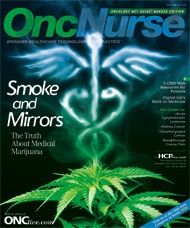Publication
Article
ONCNG Oncology Nursing
Whistleblowers: A Tale of Two Nurses
On February 11, 2010, the American Nurses Association (ANA) issued a press release describing the outcome of the criminal trial dubbed the "Winkler County Nurse Trial.
On February 11, 2010, the American Nurses Association (ANA) issued a press release describing the outcome of the criminal trial dubbed the “Winkler County Nurse Trial.” In case you are not familiar with this trial, Anne Mitchell, a registered nurse, was fired from her job and faced a third-degree felony charge in Texas for “misuse of official information” because she had anonymously reported a physician to the Texas Medical Board for providing what she believed to be unsafe patient care. In less than an hour, the jury returned a not-guilty verdict for the defendant. Had the jury ruled otherwise, Mitchell could have faced a sentence of 10 years in prison and a $10,000 fine.
In an ANA press release, Susy Sportsman, PhD, RN, president of the Texas Nurses Association, a constituent member association of the ANA, said, “We are very pleased about the not-guilty verdict and that justice prevailed for Anne Mitchell.” She noted, “If anything was to be gained from the absurdity of this criminal trial, it is the reaffirmation that a nurse’s duty to advocate for the health and safety of patients supersedes all else.” The verdict “is a resounding win on behalf of patient safety in the United States. Nurses play a critical, duty-bound role in acting as patient safety watch guards in our nation’s healthcare system. The message the jury sent is clear: the freedom for nurses to report a physician’s unsafe medical practices is non-negotiable,” said Rebecca M. Patton, RN, MSN, CNOR, ANA president, in the press release. Despite Mitchell’s victory, Patton noted that the “ANA remains shocked and deeply disappointed that this sort of blatant retaliation was allowed to take place and reach the trial stage—a different outcome could have endangered patient safety across the United States, having a potential ‘chilling effect’ that would make nurses think twice before reporting shoddy medical practice.”
The United States is not the only country where nurses may be penalized for whistleblowing. In April 2009, Margaret Haywood, a nurse practicing in the United Kingdom for over 25 years, was found guilty of misconduct at a hearing of the Nursing and Midwifery Council (NMC) and removed from the NMC nursing register because she had exposed the awful conditions and lapses in care experienced by elderly patients at the Royal Sussex Hospital. Haywood had secretly captured footage of the deplorable conditions, which was shown as part of a BBC program called “Undercover Nurses.” The NMC panel reviewing the case justified removing Haywood from the register because they claimed she had prioritized filming over her obligations as a nurse and had breached patient confidentiality. Although Haywood admitted to breaching patient confidentiality, she noted that all patients had signed consent forms after being filmed, and that she was most dismayed by the allegation that she had neglected her nursing duties.
In October 2009, after further hearings, the British High Court ruled to reinstate Haywood on the register, and she was given a 1-year caution. Astatement issued by the Royal College of Nursing on October 12, 2009, noted that the organization had started collaborating with patient groups, the Royal College of Midwives, and other organizations to develop policies on how nurses and midwives can appropriately raise and escalate concerns. These policies are anticipated to be published sometime this summer.
Mitchell and Haywood both suffered as a result of exposing unsafe patient care, and fortunately both were vindicated. I agree with both Sportsman and Patton that reporting unsafe care is a nurse’s moral and legal obligation and should supersede all else, no matter which side of the pond you are on. It should be up to the entity to which the alleged unsafe care was reported (eg, health department, state licensing body, regulatory agency), and not a criminal court, to determine if unsafe care was delivered. There should be a mechanism to address malicious or fraudulent reports, along with appropriate consequences, but a nurse who in good faith reports what he or she believes to be unsafe care should never have to face a criminal charge or fear being fired or losing his or her ability to practice.
Lisa Schulmeister, MN, APRN-BC, OCN®, FAAN, is an oncology nursing consultant and adjunct assistant professor of nursing at Louisiana State Health Sciences Center in New Orleans, LA, and the editor-in-chief of OncNurse.
